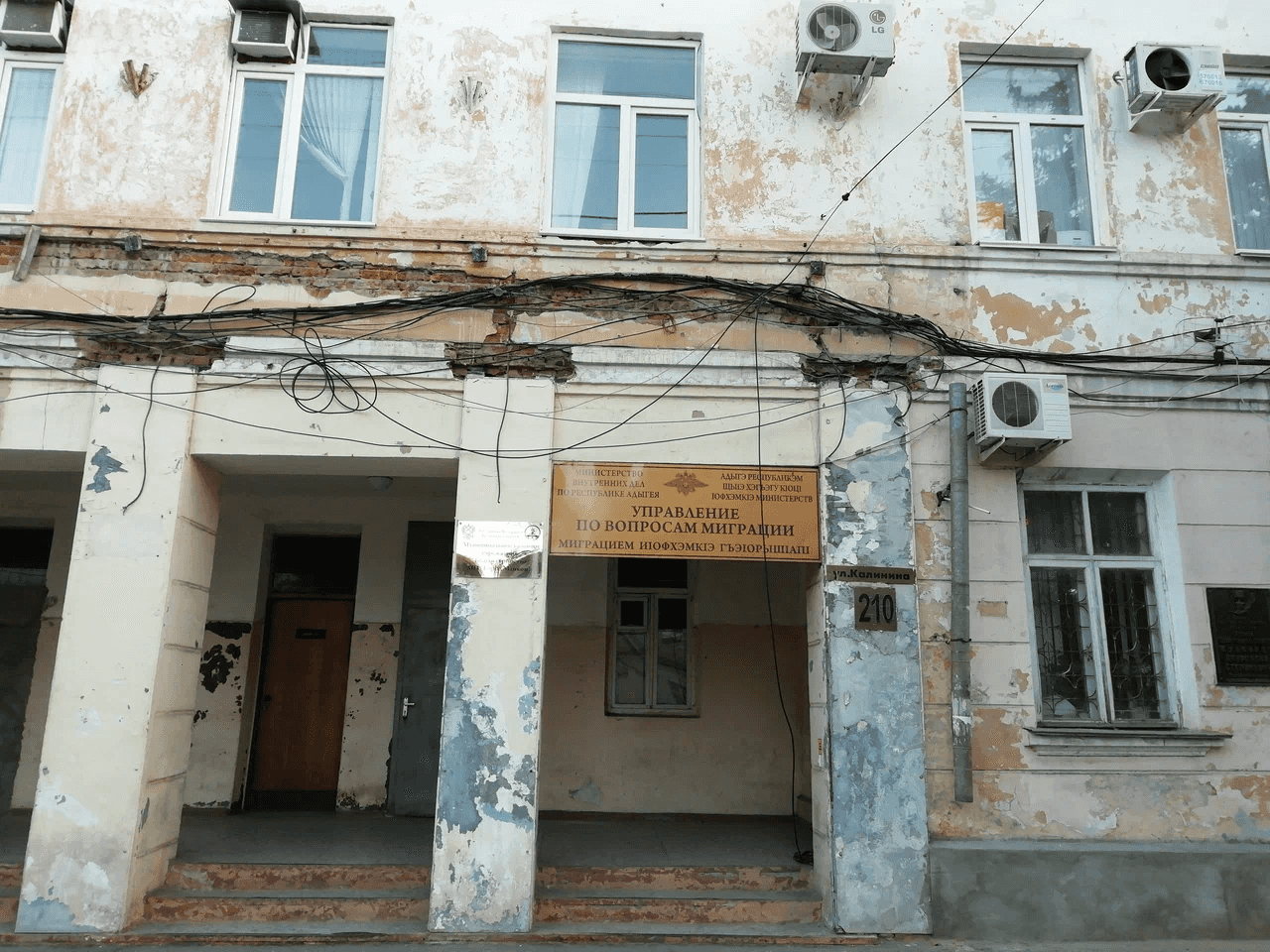

A school director in the Russian Republic of Kabardino-Balkaria is suing one of her former employees after she spoke out against the lack of Circassian language lessons in the school.
On 18 March, Nalchik City Court again heard testimony regarding a suit brought by the director of the city’s Gymnasium No 14, Rimma Zhamborova, against former Circassian language teacher Maryan Bagova and Kabardino-Balkaria’s Human Rights Centre.
Zhamborova filed a lawsuit against Bagova and the Human Rights Centre accusing them of libel and demanding ₽300,000 ($4,700) from each as compensation for moral damages.
In her suit, Zhamborova said that an open letter from Bagova published on the Human Rights Centre’s Facebook page had led to threatening comments being posted against her.
In November 2018, Bagova published a letter addressed to the deputy director of the gymnasium in which she said she had been forced to leave her job due to a sharp deterioration in her health caused by ‘the unbearable moral and psychological situation created in the educational institution by director Zhamborova’.
The post received a number of negative comments, some of which contained threats of physical violence towards Zhamborova.
The court began hearing the case at the end of December 2018; the next court session will be held on 5 May.
Zhamborova did not respond to repeated requests for comment.
Discrimination against the Circassian language
According to Bagova, the conflict between her and the school’s director began after Zhambarova reduced the number of teaching hours the Circassian language received at the school. She said the salaries for teachers were also reduced.
Zhamborova’s decision came after amendments to the Federal Law on Education adopted by Russia’s State Duma in July 2018.
According to the amendments, the teaching of languages of titular nationalities in the Russian Federation, such as Circassian, must be on a voluntary basis. Russian remains a compulsory subject in all schools where Russian is not the first spoken language.
As a result, the number of hours the Circassian language was taught in the gymnasium decreased from ten hours a week to six, and classes were shifted to the end of the day.

Before the court case began, Bagova told OC Media that in 2018, Circassian language and literature teachers were not given a standard teaching programme to follow. She also said that other subjects were being taught at the expense of the Circassian language.
‘I consider that these facts not only discriminate against the East Circassian language but also infringe upon the labour rights of its teachers’, Bagova said.
East Circassian, also known as Kabardian, is one of two written standards of the Circassian language, along with Adyghe.
In December, the Human Rights Centre reported that the gymnasium had illegally pressured students into opting out of Circassian classes, telling them that if they did not agree to drop the subject, it could affect whether or not they pass the Unified State Examination, Russia’s university entrance exams.
Valery Khatazhukov, the head of the Human Rights Centre, said at a press conference in November that Zhamborova had illegally ordered that all literature in the Circassian language be removed from the school’s library, under the pretext of getting rid of damaged books. He also said that the Circassian language department had been disbanded and attached to the English department, among other changes.
Prior to the suit, Bagova had publicly opposed the school’s language policy. She said that this had resulted in her being subjected to harassment by Zhamborova.
In September, Bagova wrote an open letter addressed to the mayor of Nalchik, Taymuraz Akhokhov, in which she addressed the perceived bias in the gymnasium’s management against the language.
She noted that she had received a salary of only ₽5,000 ($75) in September, instead of the ₽8,000 ($125) she was due. She said the school’s accountant had told her the reduction was because she had worked three days less than the required amount, and was asked to explain the reasons for her absence.
‘I explained the absurdity of such a requirement to them, since I was at work on all working days,’ Bagova wrote in her letter, adding that she was present regardless of whether she had classes that day or not. She also said that the gymnasium’s administration was obliged to keep records of the arrival and departure of teachers.
Lack of certification
Muaed Chechenov, a member of the Coordination Council of the Adyghe public organisations of Kabardino-Balkaria, representing Bagova and the Human Rights Centre in court, told OC Media that Zhamborova should not have been in a managerial position at all.
According to him, her position contradicts the current Regulation on the Certification of teachers and educational institutions.
According to this regulation, if the head of an institution commits a violation, their certification becomes conditional and they must rectify the violation within three years or lose their certification.
On 18 March, Chechenov received documentation from the Department of Education of Nalchik showing that Zhamborova had four times been subject to disciplinary proceedings, the last time in December 2018.
He said that as her certification was made conditional in 2015, she would have needed to rectify the violations at the school by the summer of 2018, but that ‘no one has checked if the violations were eliminated from the gymnasium’.
‘The defence also has a collective appeal from parents of pupils of Gymnasium No 14, which concerns a number of such violations. The list of these violations is quite long and there is an obvious component of corruption in them’, Chechenov told OC Media.
Chechenov said that in this case, there were also violations on the part of the city administration, including the mayor’s office and Deputy Mayor Islam Ulbashev, who is responsible for supervising educational institutions in Nalchik.
‘I do not exclude the possibility that [the violations] were committed on their direct instructions’, Bagova said in her letter to Akhokhov.









